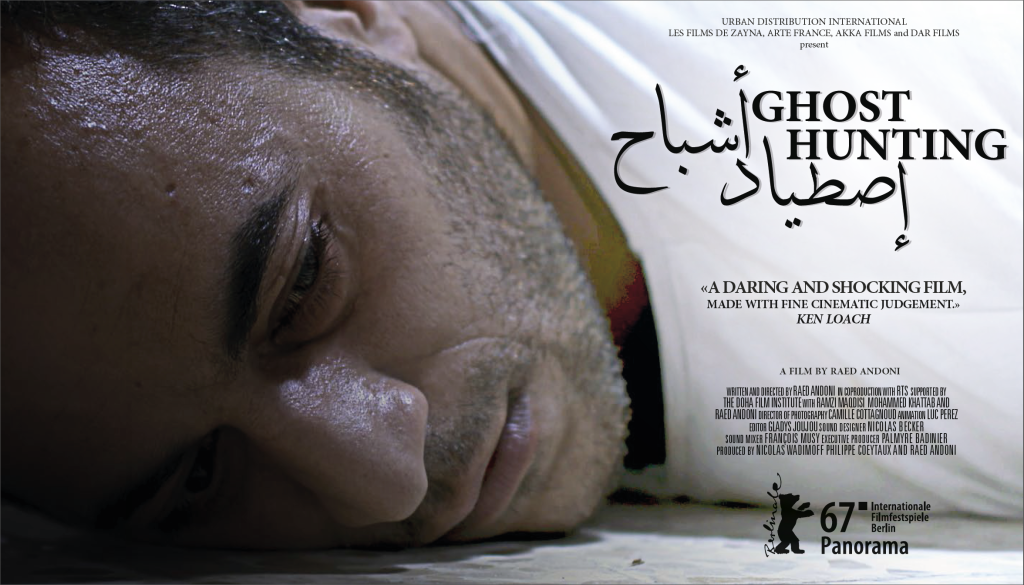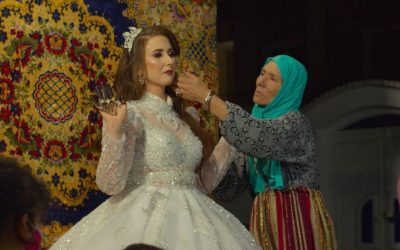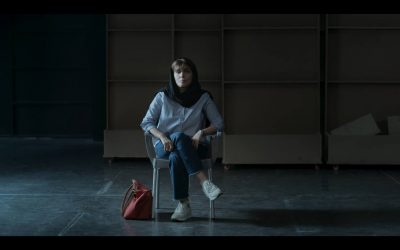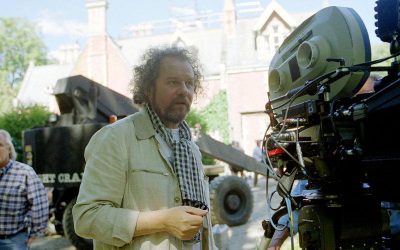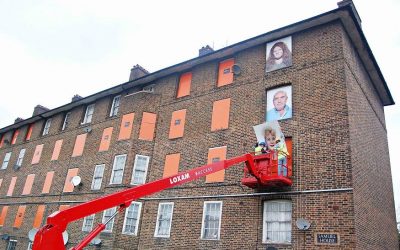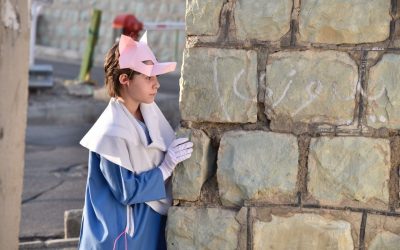Raed Andoni, a Palestinian filmmaker, began his career in 1997 as a producer. He produced a number of films acclaimed in international festivals and markets. In 2006 he directed his first 60 minute documentary IMPROVISATION which was screened in various international festivals and TV channels. His feature FIX-ME premiered in the official competition at the Sundance Film Festival in 2010, was in the ACID selection at Cannes festival 2011 and many others festivals and was released in theaters in France and Switzerland. Andoni’s latest film GHOST HUNTING premiered at the Berlin International Film Festival 2017 and won the Glashütte Original Documentary Award and the people’s choice award. GHOST HUNTING took part in over 150 festivals and won 20 prizes before it became Palestine’s Official ticket to the OSCARS in 2019.
- RedCut: Firstly, how did you decide to choose cinema as a means to express truth, and how do you examine the relationship between documentary cinema and activism?
Raed Andoni: I don’t think it is a matter of choice, but rather of a person’s desire to discover himself. Filmmakers may have a natural sensitivity to their surroundings, a talent, or a desire to express themselves due to a sense of individuality. In addition to that, in the Palestinian context, the feeling of complete annihilation drives us to seek ways of expression. It’s important to remember that Israel was founded on the promise of “a land without a people for people without a land,” implying that Palestinians have been completely erased as a people, narrative, history, culture, and identity.
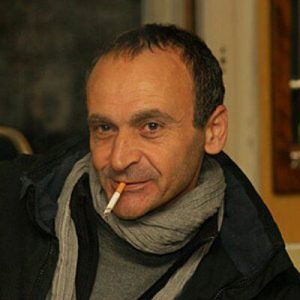
Raed Andoni Palestinian filmmaker
- RedCut: People around the world were unaware of the extent of Palestinians imprisoned in Israeli jails and the massacre of Palestinians, as well as the displacement of people. They realized numerous young children, even 11-year-olds, were in prison, and the number of youths and teenagers was significantly higher. In your film… how did you come up with this idea in 2017 and decide to reconstruct this reality?
Raed Andoni: Since 1967, about one million Palestinians have been detained in Israeli prisons. This figure indicates that 20% of Palestinians were subjected to this circumstance. I was one of them, I was exposed to this experience when I was Eighteen years old. So the jail story is part of the Palestinian collective memory, and it is also a personal one for me. I’ve known for a long time that I needed to cope with this experience cinematically. The challenge for me was: how, from what perspective, and in what style? What distinguishes Palestinians are in their long-standing battle against occupation and injustice. They are strong people, or they are expected to remain strong all of the time. They are victims, yet they do treat themselves with remarkable dignity. This piqued my interest, so I chose not to make a film about the victim’s speech, but rather about prison survivors. The film is about the ghosts that continue to haunt the prisoner after he is released. How can we convert our tragedy into an opportunity for hope?
- RedCut: Do you believe cinema is one of the tools that helps amplify the voices of oppressed people? If so, what are the strategies for creating this type of cinema, and what suggestions do you have in this regard?
Raed Andoni: What distinguishes cinema is the unique and deep relationship that connects the viewer with the story’s characters, a relationship that is free of stereotypes and prejudices about good and evil, a relationship that is deeper and more real, and based on emotion, implying its ability to humanize people and learn about them and their cultures. Unfortunately, cinema is the most expensive form of art. As a result, the wealthy have complete control over it. Over time, they have portrayed the white man as an absolute hero, a symbol of goodness, while demonizing others. In short, this exquisite art has been used for political and commercial purposes in their war for hegemony.
- RedCut: Today, we are witnessing the most harrowing crimes in history through cameras held by the people of Palestine. If these handheld cameras on phones didn’t exist, Israel would still be engaged in propaganda and perpetrating injustices and crimes against the Palestinian people as it has done in the past. How do you examine the role of cameras in the hands of the Palestinian people in this significant historical rift, where the power lies with the mainstream media reliant on major powers?
Raed Andoni: Not only that, but I am optimistic that people will soon be free of the grip of the mainstream media, which is owned by wealthy and prominent people. I see hope in the younger generation, which is beginning to break free from the false narrative and has the ability to know and reach the truth. Israel was founded on a false, carefully manufactured myth. Today, following the tragic events in Gaza, the truth is being revealed to the entire world. This reminds me of Godard’s statement that Israel is fiction and Palestine is the documentary narrative.
- RedCut: As a Palestinian filmmaker currently outside of Palestine, what solutions do you know of to create space and opportunities for the voices of Palestinians to beheard?
Raed Andoni: From the perspective of an individual living in the West, I perceive that the issue is not limited to Palestine. We require genuine freedom, an objective press that seeks the truth, a democracy that represents the people, and great principles. We need to create functional and capable human rights institutions that adhere to true humanitarian norms rather than double standards. In the past, fascist administrations displayed themselves through the persecution of specific ethnic communities. Unfortunately, I see that the fascist ideology persists, but it has simply altered the ethnic group that is persecuting it.
- RedCut: Would you support canceling and boycotting Israeli cinema and art, which are linked to the Israeli government, to create more space and a louder voice for Palestinian filmmakers and artists? What would your suggestion be, considering numerous supporters of Palestine and Palestinian artists have been canceled in the cultural and artistic sphere?
Raed Andoni: I support a boycott of Israel and all corporations and institutions that support it. I believe that boycotting and imposing sanctions on Israel is a crucial and effective way to turn the occupation and apartheid system into a losing project.
- RedCut: Finally, considering the current circumstances, do you have any film or project in progress that you’d like to discuss? Has the situation in Palestine influenced any changes or impacts on your approach to documentary filmmaking, leading you to consider altering a project to focus on conveying the truth of the Palestinian people?
Raed Andoni: Before the current attack against Gaza and the Palestinian people, I had finished writing a new film project that was set to be shot in Palestine. It’s a narrative film with documentary aspects, but I’ve stopped thinking about it entirely. I’m frightened to write while I’m going through a difficult time or experiencing strong emotions.

